Electric Field Lines
Important Questions on Electric Field Lines
What do electric lines of force represent? Explain repulsion between two like charges on their basis.
What do you understand by electric line of force and give its two important properties.
Define an electric field line. Draw the pattern of the field lines around a system of two equal positive charges separated by a small distance.
Figure shows three different patterns of electric field lines. In each pattern, a proton is released from rest at point and then accelerated towards the point by the electric field. Rank the patterns according to the linear momentum of the proton when it reaches , greatest first.
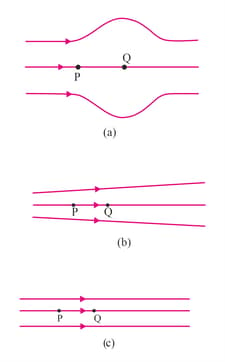
Figure shows tracks of three charged particles in a uniform electrostatic field. Give the signs of the three charges. Which particle has the highest charge to mass ratio?

You are given the initial velocity of a beam particle and the length of the capacitor . What other measurement would enable one to find ?
Figure shows tracks of three charged particles in a uniform electrostatic field. Give the signs of the three charges. Which particle has the highest charge to mass ratio?
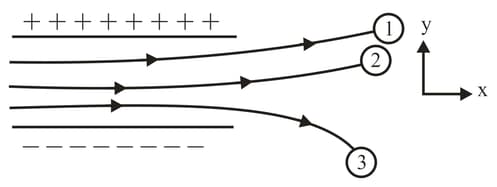
Suppose, two particles have identical curved trajectories. Which of the following are necessarily true?
Figure shows tracks of three charged particles in a uniform electrostatic field. Give the signs of the three charges. Which particle has the highest charge to mass ratio?
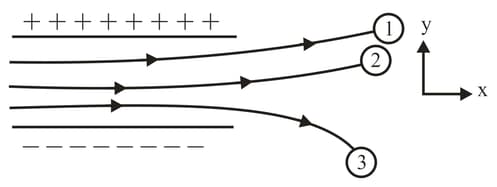
Suppose that a particle is attracted towards the positive plate: what must the charge on it be?
Figure shows the electric lines around three charges and . In which region or regions of the picture could the electric field be zero? Justify your answer.
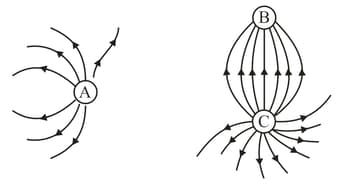
Figure shows the electric lines around three charges and . Which charge has the largest magnitude? Why?
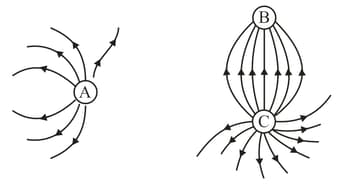
Figure shows the electric lines around three charges and . Which charge is positive?
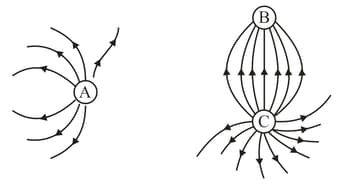
Sketch the electric field lines for a uniformly charged hollow cylinder as shown in Fig.
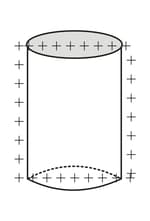
Fig. 1.109 shows electric lines of force due to point charges and placed at points and respectively. Write the nature of charge on them.
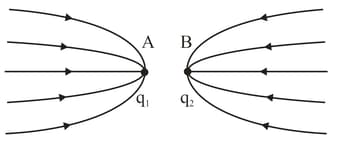
Draw lines of force to represent a uniform electric field.
Do the electric lines of force really exist? What is about the field they represent?
Why do the electrostatic field lines not form closed loops?
A small test charge is released at rest at a point in an electrostatic field configuration. Will it travel along the line of force?
A charged particle is free to move in an electric field. Will it always move along an electric field?
Which among the curves shown in the figure cannot possibly represent electrostatic field lines?

Explain why two field lines never cross each other at any point?
An electrostatic field line is a continuous curve. That is, a field line cannot have sudden breaks. Why not?

